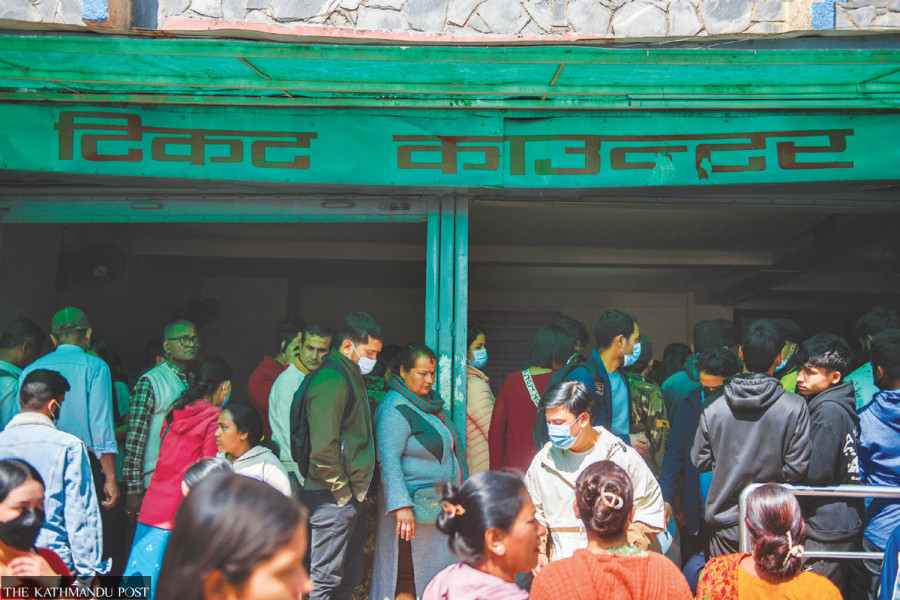Editorial
What were they thinking?
The budget cut has had a devastating impact on Bir Hospital, much to the dismay of poor patients.
At a time when more and more countries in the developing world are looking to strengthen their welfare benefits and ensure better health services for their citizens, Nepal seems to be going in the opposite direction. Bir Hospital, the state-run facility in the federal capital, is in a bad shape, as its general beds have been reduced from 960 to 600. Even the life-saving intensive care unit (ICU) and emergency beds have been reduced from 60 to 27 and from 55 to 35, respectively. Notably, in a single day, over 3,000 patients from across the country seek services at the hospital, and many of them are now being forced to head home without treatment.
This situation didn’t emerge overnight, as it is a result of neglect of the government in dealing with and mobilising healthcare manpower in the hospital. Last October, citing lack of funds, the Health Ministry showed the door to 276 nurses working there. (The government has in the past few years made deep cuts in the health budget, affecting several healthcare programmes and facilities.) As reported by Nayapatrika daily, there are around 400 nurses and 17 anesthesiologists in the hospital. The number is still inadequate. For proper functioning of the total 960 beds, the hospital must add 250 nurses and 10 anesthesiologists.
Governments fund healthcare in developing countries like Nepal so that their citizens get access to quality services at affordable cost. For the poor and marginalised, the services are lifesavers. In many ways, Bir Hospital is tailor-made for them. It provides services including general wards and surgeries free of cost and charges only Rs3,000 for ICU beds. There are other facilities like free meals and snacks for patients and even visitors. There are no such provisions in private hospitals that charge people an arm and a leg. If those of limited means have to visit private facilities, many of these folks will choose not to be treated as they cannot afford private establishments. In the long run, this will further exacerbate the already alarming differences in lifetime health outcomes between the rich and the poor.
Even while countries like the United Kingdom are recruiting health personnel from Nepal, our own government hasn’t been able to ensure jobs for them. As Covid cases are on the rise again and dengue, cholera, typhoid and other water-borne diseases spread, the capacity of government hospitals to accommodate patients should be enhanced, not cut. Bir Hospital has much-needed ventilator facilities that saved many people during the pandemic. That service can be reused again. In the light of all this, it is hard to find a single good reason to slash the hospital’s budget.
The Constitution of Nepal recognises health as a fundamental right and guarantees free and basic health services. No one will be deprived of emergency health services, it vows. In order to meet this constitutional pledge, the country must strengthen its public health services through policy intervention and more budgetary support. If it’s not worth investing in Bir, which literally is among a handful of affordable tertiary-care centres for the poor in the country, we wonder if our governments past and present have gotten their priorities wrong.




 25.42°C Kathmandu
25.42°C Kathmandu














